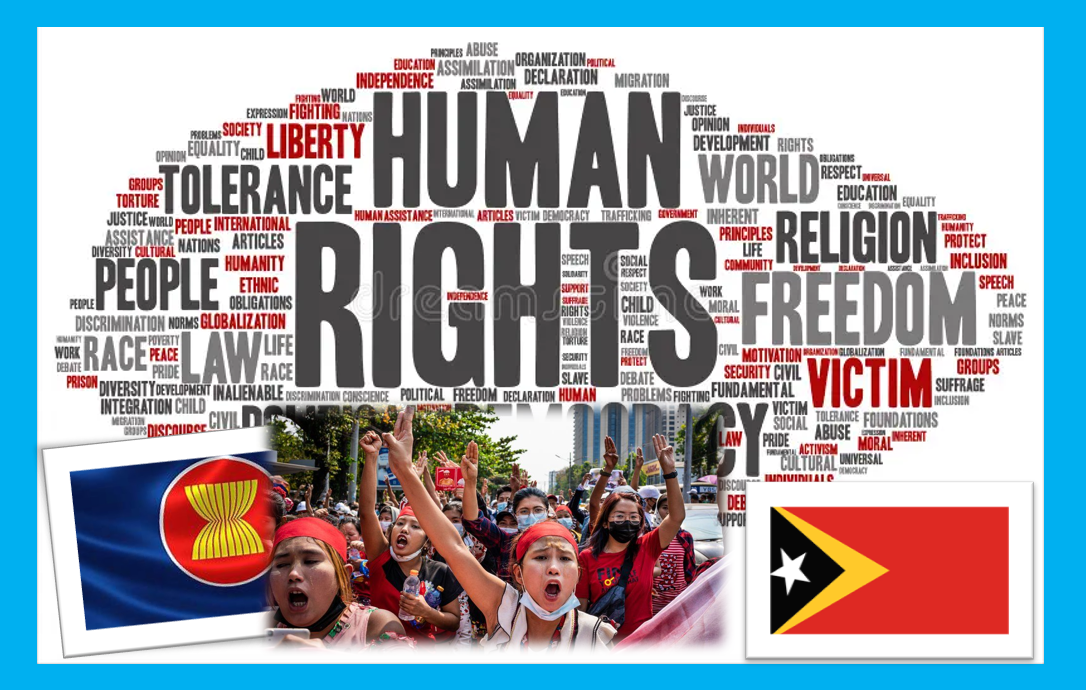
Timor-Leste’s Support for Fairness and Human Rights in Myanmar’s Crisis
Timor-Leste, the youngest nation in Southeast Asia, has become a strong supporter of fairness and human rights during Myanmar’s ongoing crisis. This principled stand goes against ASEAN’s usual focus on order and makes us think about how the region deals with Myanmar’s complicated problems. Timor-Leste’s position is based on its democratic beliefs, common history, and support for Myanmar’s fight for democracy. In this blog post, we will look at Timor-Leste’s stance on Myanmar, what it means for ASEAN and its wider regional effects.”
A Call for Justice and Human Rights
Myanmar’s military junta recently told Timor-Leste’s top diplomat to leave, causing problems in their relationship. Timor-Leste strongly criticized the Military junta’s leaders and showed firm support for the Myanmar People’s efforts to bring back democracy. This happened while Myanmar has been facing violence since a military coup in February 2021, leading to a lot of fighting and a civil war. Many civilians have been hurt or put in jail during this time.Timor-Leste’s position on Myanmar comes from its dedication to democracy and human rights. The country has regularly criticized Myanmar’s military regime and actively helped the opposition, even inviting important people from Myanmar’s National Unity Government (NUG). In response, Myanmar’s military has called NUG members terrorists, making the situation between the two countries even more tense.
Timor-Leste’s Diplomatic Engagement with Myanmar’s NUG
Myanmar’s National Unity Government’s Foreign Minister, Zin Mar Aung, attended an inauguration in Timor-Leste at the invitation of President Jose’ Ramos-Horta. This visit was significant as it highlighted Timor-Leste’s solidarity with Myanmar’s NUG, a move that drew strong objections from the Military’s regime. The military junta labeled NUG members as terrorists and warned against any contact with them, accusing Timor-Leste of encouraging terrorism. Timor-Leste’s support for Myanmar’s struggle for democracy and its willingness to engage with representatives demonstrate its commitment to principles of justice and human rights. However, this stance has not been without consequences, as it has strained diplomatic relations between Timor-Leste and Myanmar’s NUG.
Timor-Leste’s ASEAN Membership Bid and Challenges
Timor-Leste’s effort to become part of the Association of Southeast Asian Nations (ASEAN) has faced some difficulties. While Cambodia, the upcoming ASEAN leader, has shown support for Timor-Leste’s inclusion, a recent United Nations vote regarding Myanmar adds complexity. Timor-Leste decided not to vote either for or against a UN resolution condemning Myanmar’s military ruler, a choice seen as an attempt to get Myanmar’s backing for its ASEAN entry.Some people criticized this decision, especially former President Jose Ramos-Horta, who worried about Timor-Leste’s position within ASEAN. Other ASEAN members supported the UN resolution, and Timor-Leste’s stance could affect its efforts to join ASEAN.
ASEAN’s Response to the Myanmar Crisis
Ongoing violence and instability in Myanmar present significant challenges to ASEAN’s capacity to deal with important regional issues. Myanmar’s political instability, which started with a military coup in February 2021, is still ongoing. ASEAN’s suggested five step plan for peace in Myanmar has seen no progress, as Myanmar’s military regime hasn’t fully committed to it. Indonesian President Joko Widodo has called for a broader restriction on the participation of Myanmar’s leaders, and this is supported by human rights organizations. Meanwhile, East Timor’s path towards ASEAN membership is advancing, but the Myanmar crisis remains a complex problem for ASEAN’s unity and diplomacy. Cambodia, as the host of the ASEAN summit, emphasized the importance of regional and global unity. While ASEAN’s role in promoting peace, security, and development is crucial, addressing the Myanmar crisis tests its diplomatic abilities.
Timor-Leste’s Path to ASEAN Membership
Timor-Leste’s desire to become part of ASEAN has been shaped by economic and political factors. Worries about its dependence on unpredictable income from oil and gas and its positions on issues like human rights and foreign involvement have played a role in the delay of its membership. However, concerns about Timor-Leste’s commitment to democracy seem largely unjustified, as it aligns with ASEAN’s principle of non-interference. Ultimately, the decision to include Timor-Leste in ASEAN has been driven by the economic advantages, even though some member states initially had doubts. Timor-Leste is actively pursuing involvement in international organizations, indicating its confidence in its global position and potential for growth.
Conclusion
Timor-Leste’s strong position on the Myanmar situation questions ASEAN’s past highlights on keeping order rather than following justice, underscoring the significance of acknowledging and respecting regional distinctions. While Timor-Leste’s stance could impact its entry into ASEAN, it encourages a reconsideration of ASEAN’s values and the equilibrium between order and justice in Southeast Asia. As Timor-Leste aims for ASEAN membership, it demonstrates the country’s commitment to regional collaboration and growth. The ongoing Myanmar crisis presents a multifaceted test for ASEAN’s cohesion and diplomacy, demanding cautious maneuvering within the changing regional security environment.

I agree with your idea. I would like to present my thoughts dealing with this blog in the comments. The support and official recognition of Timor-Leste on National Unity Government (NUG) can be considered a powerful alliance for the democratic forces who are fighting against the junta. In my understanding, there are three significant facts behind the support of Timor-Leste: willingness to support democracy, humanitarian concerns, and regional and international dynamics. Timor-Leste, which is yet a fledgling democracy, may support democratically elected governments and align itself with democratic ideas. Timor-Leste’s attitude may be based on its dedication to democracy in light of the military coup in Myanmar that toppled the democratically elected government. There have been several reports of violence and violations of human rights after Myanmar’s military takeover. Timor-Leste may identify with the humanitarian predicament of the people of Myanmar and send assistance as a show of solidarity because it has experienced its own hardships. Timor-Leste’s attitude toward Myanmar may be impacted by diplomatic considerations within ASEAN or in accordance with more general international principles. The situation in Myanmar has been a source of regional and global concern. By means of standing with NUG, they can somehow express their standpoint based on the norm of democracy.